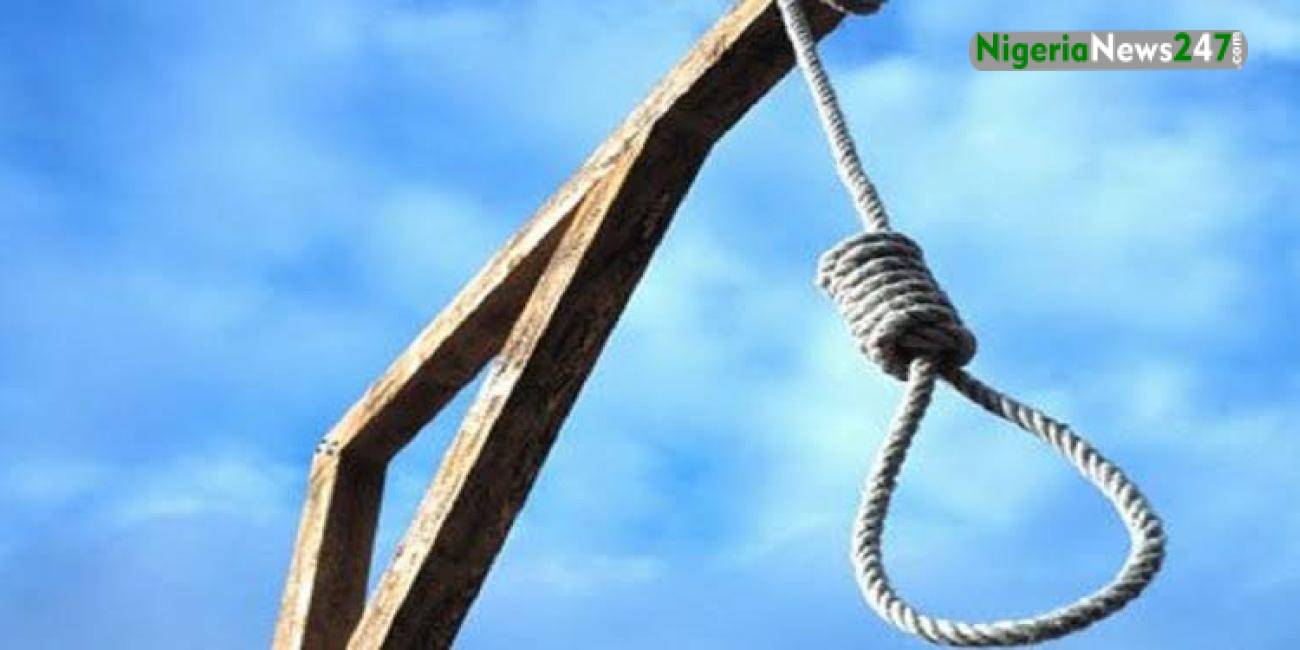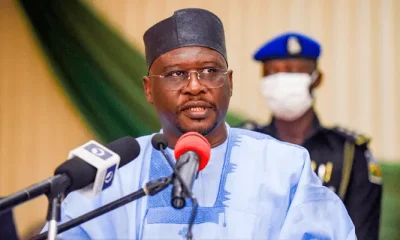NIGERIA NEWS
Rising Suicide Threats in Nigeria Spark Concerns Over Mental Health Crisis

Despite attempted suicide remaining a criminal offense in Nigeria, a growing number of young people are taking to public spaces — climbing billboards, telecom masts, and other high structures — to either cry for help or make demands, often in acts of desperation.
On Monday morning, a 19-year-old identified as Ibrahim Abubakar scaled a towering billboard at the Gadar Lado area along Zaria Road in Kano State. His demand: to see popular TikTok influencer Abdul BK in person — or he would take his own life.
Eyewitnesses reported that Ibrahim, from Adamawa State, sat atop the structure for hours, visibly distressed and muttering to himself, while onlookers and motorists gathered below, causing traffic disruptions and widespread panic.
The tense standoff ended when Abdul BK was brought to the scene. The young man descended safely after seeing the influencer, according to Kano police spokesperson DSP Hussaini Abdullahi.
A Troubling Trend Emerges
This is just the latest in a disturbing series of similar incidents across Nigeria. Earlier in June, in Bauchi, Adamu Salisu climbed a telecom mast and vowed not to come down unless a senior official at the Nigerian National Petroleum Company Limited (NNPCL), Bala Wunti, declared his intention to run for governor in 2027.
In July 2024, another man, Shaibu Yusuf from Borno State, scaled a 120-foot mast at Aso Radio & TV in Abuja. His protest: a call for the federal government to reverse its decision on fuel subsidy removal and address worsening economic hardship.
These high-profile acts have become a worrying pattern — part protest, part cry for help — and have drawn large crowds, disrupted daily life, and triggered renewed debate about mental health awareness and support in the country.
Attempted Suicide Still a Crime Under Nigerian Law
Barrister Abdulrahman Yusuf of Smart Solicitors emphasized that under Section 231 of the Penal Code, attempted suicide is punishable by up to one year in prison, a fine, or both.
Speaking with DAILY POST, he acknowledged that while the law serves as a deterrent, it also highlights the need for increased mental health awareness and support systems.
Public Stunts or Desperate Pleas? Experts Weigh In
Dr. Hafsat Bahara, a lecturer at Skyline University in Kano, warned that these acts risk becoming a troubling trend rather than isolated incidents of distress.
“Climbing masts and billboards to make demands is becoming alarmingly fashionable among young Nigerians,” she said in an interview. “It’s no longer always about pain — for some, it’s about going viral.”
Bahara criticized what she sees as a growing disregard for the value of life, warning that these stunts could lead to fatal accidents and serious disruptions to others.
“Imagine the Gadar Lado case — traffic was gridlocked for hours. People lost time, business opportunities, and even money, all because one young man wanted attention,” she said, calling for stricter legal actions against those who engage in such acts without genuine intent.
“A Cry for Help”: Activists Urge Empathy Over Punishment
However, others take a more compassionate stance. Zulaihat Danjuma, a mental health advocate, believes many of these public suicide threats are desperate pleas for help.
“In many cases, it’s not really about wanting to die. It’s about being heard,” she said.
Zulaihat explained that emotional distress, loneliness, and a lack of support often push young people to such extremes. She also pointed to widespread stigma around mental health in Nigeria, which discourages open discussions about depression, trauma, or suicidal thoughts.
“We’re told to toughen up, pray more, or hide our pain. That silence is dangerous,” she said.
She urged both the government and the public to invest in mental health education, support systems, and economic relief for young Nigerians facing daily struggles.
“No condition is permanent,” she said. “But people need to know they’re not alone, and that help is available.”





















You must be logged in to post a comment Login